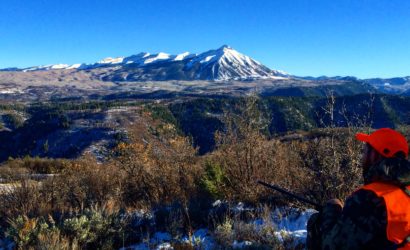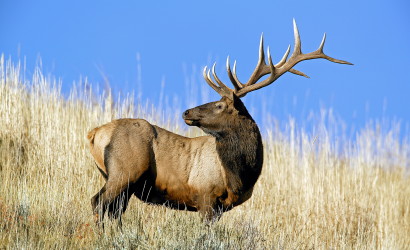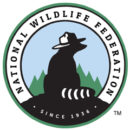We have much more to do and your continued support is needed now more than ever.
Realizing Leopold’s Land Ethic
This Week in NWF History
“A land ethic, then, reflects the existence of an ecological conscience, and this in turn reflects a conviction of individual responsibility for the health of the land.”
– Aldo Leopold, A Sand County Almanac
Aldo Leopold was the seminal natural resources thought leader of the 20th century. His work brought forth the idea of ecology and revolutionized natural resources management. He introduced the idea that the waters, woods, and wildlife are intertwined, and should no longer be viewed as pure commodities but also valuable pieces of a grand puzzle. His most influential work, A Sand County Almanac, first published in 1949, has brought this ethic to life for millions of readers.
Connecting the Movement
 As a dedicated sportsman conservationist, Leopold brought to light the distinct need for conservation as a keystone to both ecological and social health. At the time, many did not understand the relationships between predators and prey, trees and clean waters, and how humans could unknowingly, adversely affect landscapes and their own well-being. Leopold passionately introduced a land ethic, a way of considering our actions on the landscape through a moral lens. Using this ethic, he helped drive consideration of human actions in a more complete and thoughtful manner that adequately valued ecological function rather than simply justifying all action based on human desires.
As a dedicated sportsman conservationist, Leopold brought to light the distinct need for conservation as a keystone to both ecological and social health. At the time, many did not understand the relationships between predators and prey, trees and clean waters, and how humans could unknowingly, adversely affect landscapes and their own well-being. Leopold passionately introduced a land ethic, a way of considering our actions on the landscape through a moral lens. Using this ethic, he helped drive consideration of human actions in a more complete and thoughtful manner that adequately valued ecological function rather than simply justifying all action based on human desires.
These ideas kindled the conservation movement and began to articulate an obligation to give something back, to positively influence ecosystems rather than to always take from them. This line of thinking revolutionized the way Americans interacted with the natural world and spurred much of the environmental laws that to this day safeguard our air, waters and wildlife.
Leopold helped hunters and anglers understand that simply buying a license and going afield did not make one a conservationist. He implored sportsmen and women to do more, to get engaged and to use their sporting dollars to protect habitat and influence policy.
A Legacy Lost?
This obligation is now more important than ever. Efforts are underway across the country to privatize our public lands, waters and wildlife. From banning access to flowing rivers in New Mexico and transferring more hunting tags to private landowners to treating wild animals as livestock in the Midwest and attempting to transfer and sell public lands across the country, our heritage is under attack.

Unfortunately, many of us have grown complacent and forgotten the poignant lessons of Leopold. We have stood by while our heritage has slowly eroded, sitting idly as game commissions transferred big game tags to private landowners, while wild deer and elk were penned and raised as a private commodity, and while legislators in over a dozen states introduced legislation to transfer public lands to states who cannot afford to manage them and would inevitably sell to cover costs, forever stealing away our heritage and opportunity.
If we don’t wake up, exercise our rights, and protect, enhance and restore our wild lands and wildlife, one day soon it will be too late. We lose access, ecosystem vitality, and freedom to range far and wide as Americans have since the dawn of our country. We will rob our kids of their outdoor heritage.
Our program staff and state affiliates are speaking up, denouncing bills that target our public lands, and calling for strong conservation measures for wildlife and our sporting heritage. Join us by showing your support for public lands.
Take heed the teachings of Aldo Leopold. Immerse yourself in the conservation of the land. Teach others to love and respect the land and its inhabitants. Protect and defend your outdoor heritage as you would any of your most prized possessions. We can and we must. It is the call of our time.
Join Now




















